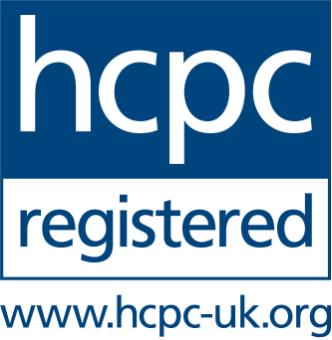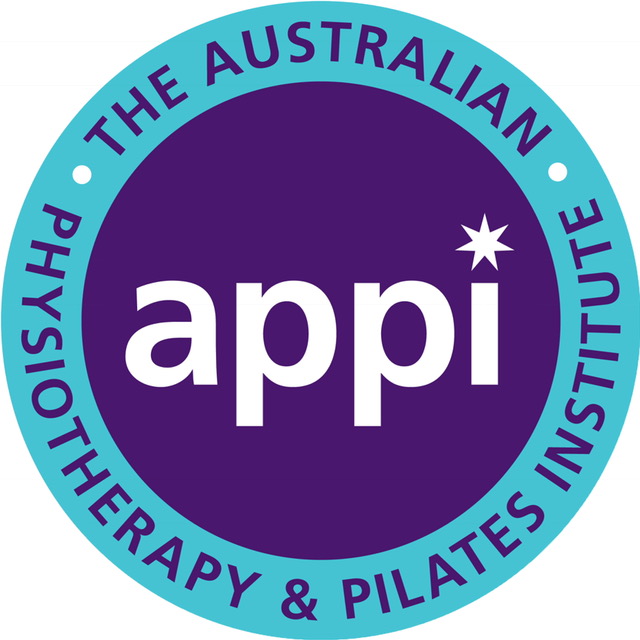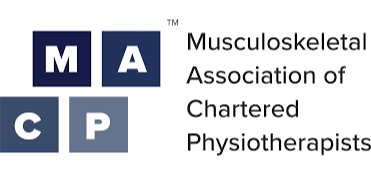How to Keep Active During Social Isolati…
How to Keep Active During Social Isolation
Our guide to keeping you fit while social distancing
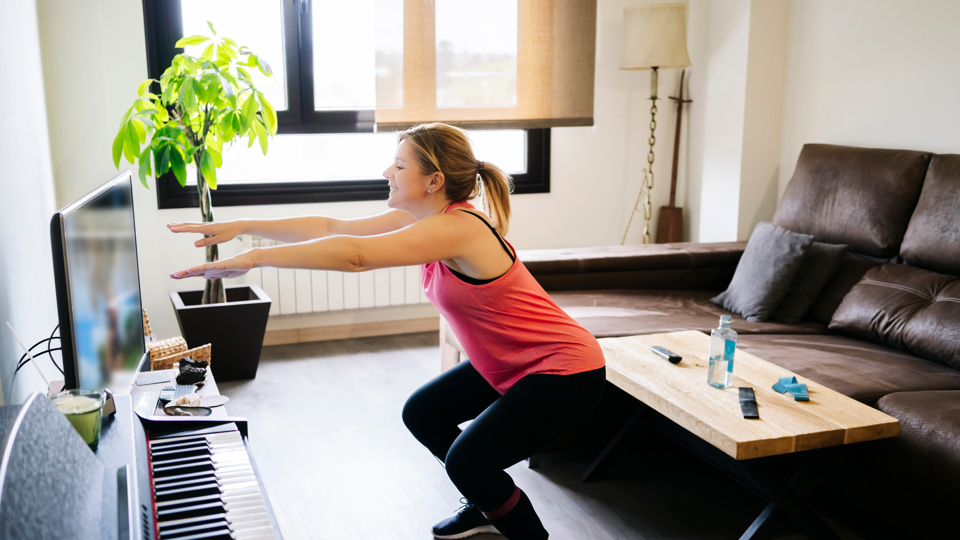
This is a very uncertain time for us all. Among many, many other concerns during this unprecedented time, you will need to consider how you achieve your exercise needs. Exercise has significant benefits for mental health and well-being, as well as joint health, muscle & bone density, and our immune systems. It is also a hugely proactive way of improving your lung function and cardiovascular health – which means if you were to become unwell, your chances of a good recovery are better! Exercise should not be another chore, or something to feel guilty about missing. It should be something you enjoy, so try and find something you look forward to.
The Department of Health recommend that adults engage in moderate intensity exercise at least 150 minutes a week. As a guide, “moderate” exercise means that you are breathing heavily but you are able to talk in full sentences, and examples include brisk walking, swimming or cycling. Now this is where it gets complicated when you are unable to leave the house! If you have an exercise bike or a treadmill, then you are in a much better position to be able to vary your exercise. If not – that is why we have written this blog, to help you achieve this target without any equipment.
150 minutes is very achievable when you realise that this works out as roughly 22 minutes a day (which we are going to round up to 25- because it’s great to beat the target!).
It is also highly recommended that you incorporate some strength (resistance) training a minimum of twice a week. This can easily be done with household objects as weights (if you don’t have any), using your bodyweight as resistance, or by using some resistance bands.
SPECIAL CONSIDERATIONS PRIOR TO STARTING A NEW EXERCISE PROGRAM
If you are completely new to exercise, and have a history of high (or very low) blood pressure, heart problems, breathing difficulties (e.g. asthma, emphysema or COPD), or are very overweight – you are still safe to exercise, but you must consider the intensity. It is never too late to make a start, but as a general rule, start small and build up slowly.
SPECIAL CONSIDERATIONS IF YOU ARE MANAGING PAIN/NIGGLES
It is important to note that ALL exercise can be broken up into small increments, which is necessary if you are managing any niggles! It is also important to understand that, in most cases, working into some discomfort (not pain) is safe. As a general rule, if the discomfort eases off within 20-30 minutes of stopping the exercise, you are working in a safe range. Even if you have arthritis or soft tissue pain, gradually exposing the body to a stimulus (in this case, exercise) will encourage the body to adapt and should eventually start to feel more comfortable. Pacing is key – you may need to take more breaks than you feel you need, to help you keep going for longer.
Get in touch with us for specific and individual advice about your problem if you find it is stopping you being able to improve your exercise capacity. Whether it is a new problem or a chronic problem, we can help!
CARDIOVASCULAR EXERCISE

- Get out and walk! Take advantage of any good weather we are lucky enough to have, and get your fix of fresh air. Remember you should be breathing heavily- swing your arms to get some speed up.
- DANCE! Turn up your favourite music and just move. There is nothing better than music to make exercise more fun.
- If you are physically able to take the stairs – do it often! Consider making several purposeful trips to increase how much exercise you are getting. For example, if you are bringing washing downstairs, empty out the basket, take that downstairs first, then bring 1-2 items at a time until the basket is full again. You could do the same when hanging the washing out- keep the basket far away (at the opposite end of the stairs if you’re capable!), and hang 1-2 items out at a time. You can apply the same principle with unpacking the shopping, unloading the dishwasher, taking the washing out of the machine – the list goes on!
If just one of these tasks takes you 5 minutes, you have achieved 20% of your daily exercise target already! Just ensure that you are putting some effort in to do things with a bit of intensity – if you move quickly enough to get yourself breathing heavily, you are doing it right!
Resistance Exercise
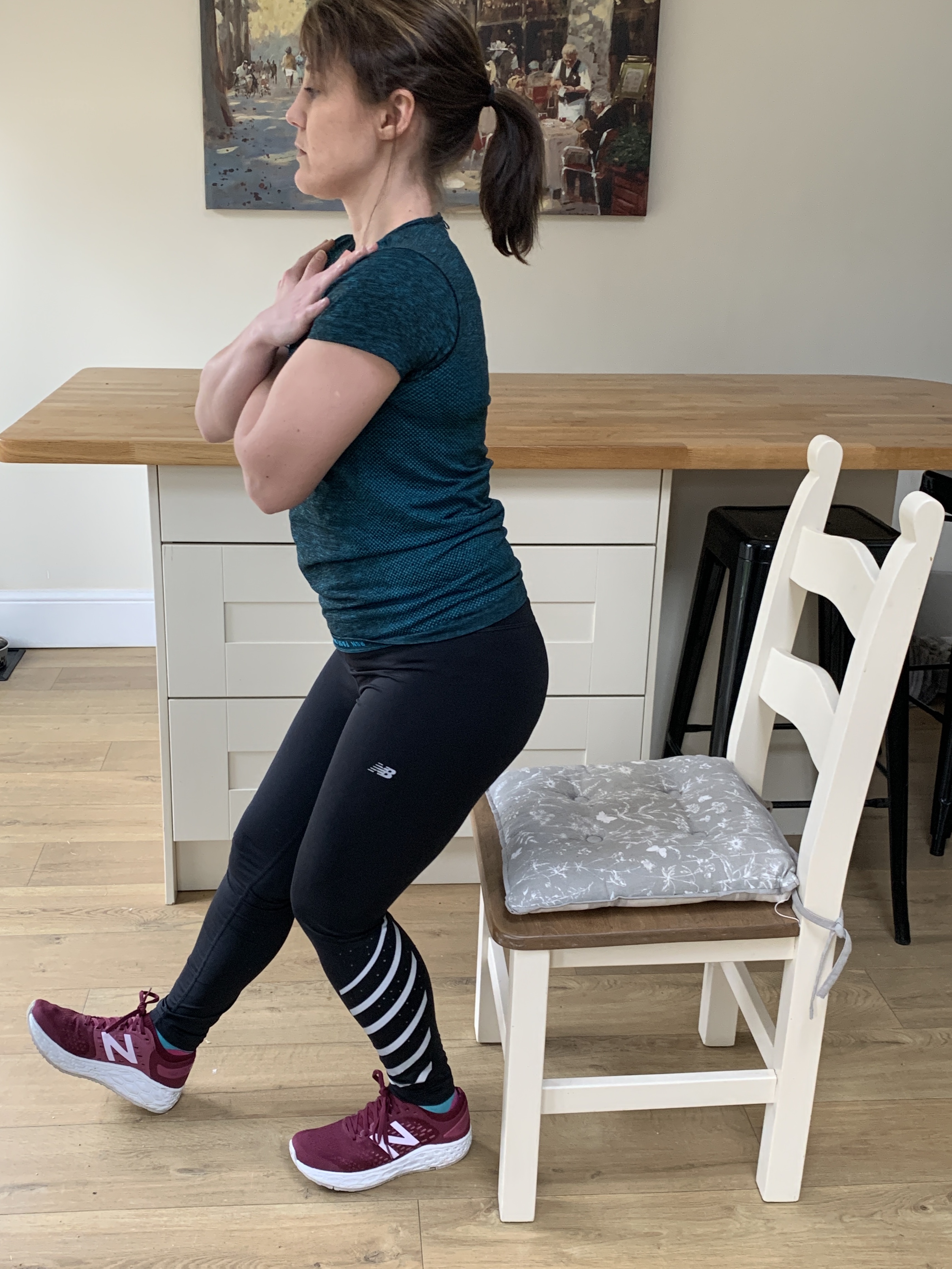
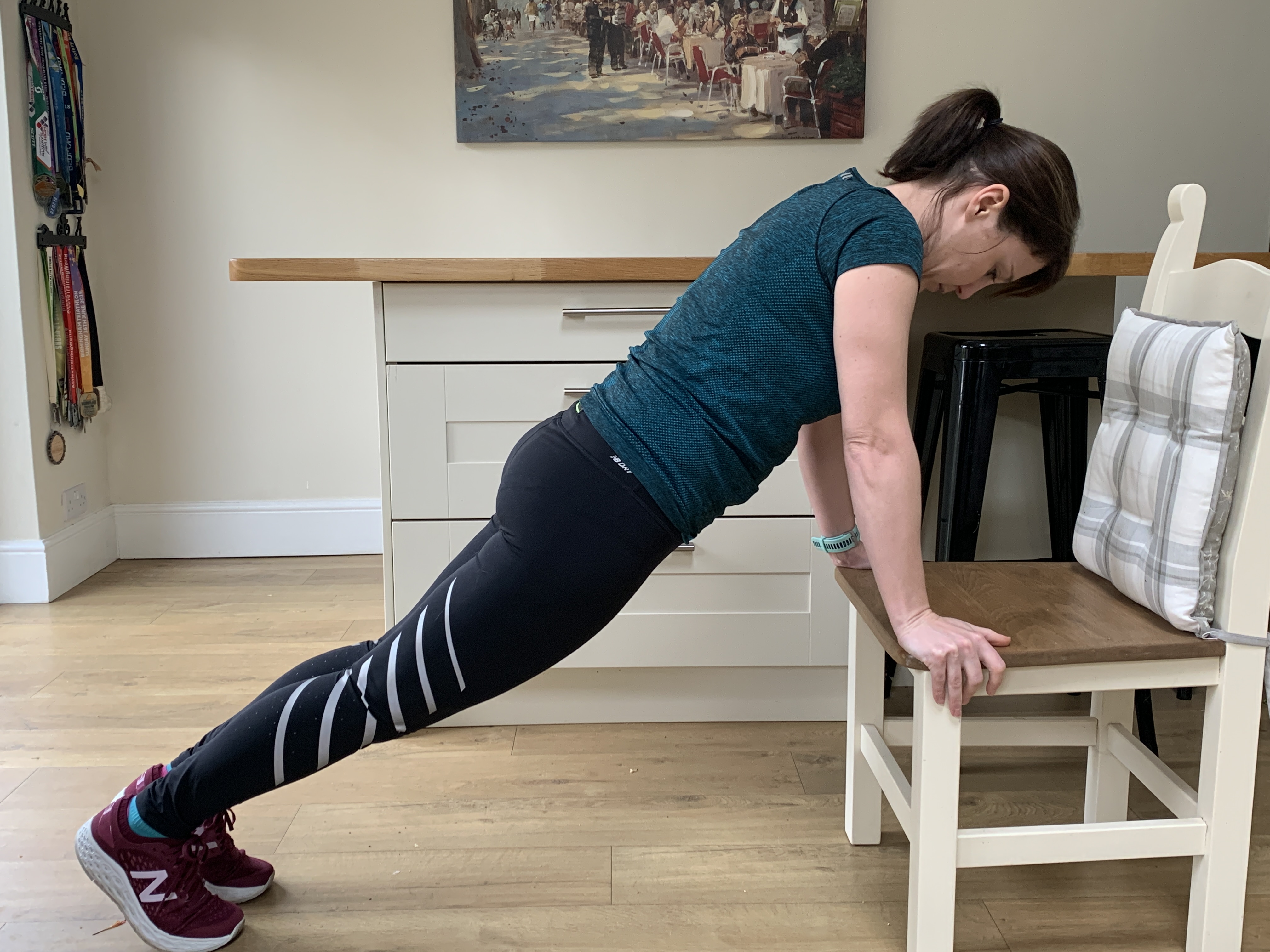
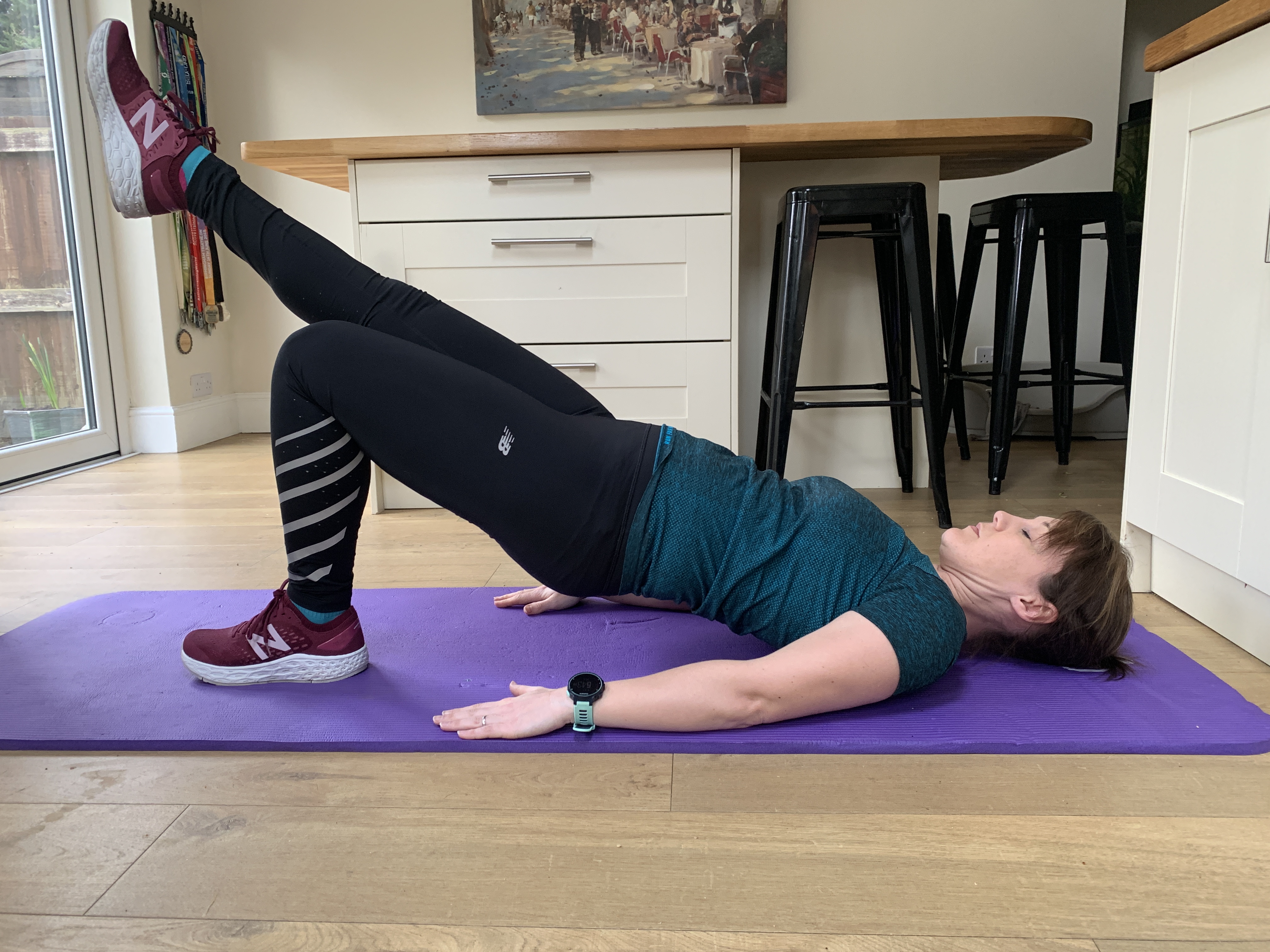
- Digging – the silver lining of having to stay at home, your garden can look more beautiful than ever!
- Moving pots / soil / furniture / garden objects – consider adding in more reps or distance than necessary to improve your strength
- Taking the stairs – we have already covered this in cardiovascular exercise. But, if you emphasise slowly climbing the stairs, this becomes a strengthening exercise.
- Anything can be made into a strength exercise, as long as it challenges you – so don’t avoid lifting something heavy if you feel you can manage it safely.
Resistance exercise 1:
SIT TO STAND – No hands allowed. Drive up through the heels of the feet and keep your knees wide- you should feel your bottom squeeze to stand you up. This is especially important if you have knee pain.
Level 1: Bed height
Level 2: Chair height
Progressions: Hold a weight, or try on one leg only!
Resistance exercise 2:
WORKTOP PUSHUPS. Hands should be at least shoulder width apart, resting comfortably on a sturdy work surface. Walk your feet backwards so all your weight (or as much as is comfortable) is shifted over your hands. Keep your elbows wide, and do some push ups! Keep them slow & steady to really test your strength.
Progressions: Lower the surface height. Could you try this on the arm of the sofa? On the stairs?
Resistance exercise 3: BRIDGE.
Please Contact us at admin@lmcphysio.co.uk or calling the clinic on 01788331570 if you would like any further information and advice about anything discussed in this blog. We are currently providing virtual Physiotherapy in which we can provide you with a bespoke exercise plan to meet your needs. We are also offering online Pilates classes on Tuesday and Thursday evenings to help you stay fit at this difficult time.

